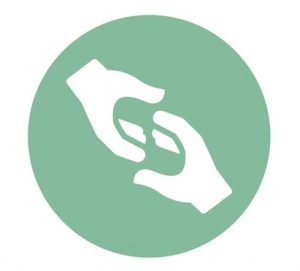Archived Content Notice
You are currently accessing the Think Kidneys website. Please be aware that this site is an archive and contains content from the Think Kidneys project, which concluded in 2019. As a result, the information presented here is no longer being updated or maintained.
For the most current and relevant information, we encourage medical professionals to visit the UK Kidney Association for comprehensive resources and updates in the field. Patients and their families can find valuable, patient-centric information and support at Kidney Care UK.
We would also like to inform you that the Kidney Quality Improvement Partnership (KQIP) is now part of the UK Kidney Association. For more information, please visit KQIP’s homepage under the UK Kidney Association.
We thank you for your understanding and invite you to explore these recommended resources for up-to-date insights and guidance in kidney care and health.
The following is a recommended intervention identified by the TP-CKD programme for implementation with both staff and patients, to test the following question:
Can the use of intervention tools help to improve the knowledge, skills and confidence of patients with kidney disease to enable fuller participation in the management of their own health?
To explore other interventions identified by the programme, visit our Interventions Toolkit Home Page
Motivational Interviewing
Motivational Interviewing is a collaborative person-centred form of guiding to elicit and strengthen motivation for change. MI uses the patient’s own motivators and values to make achievable and healthy lifestyle changes including adherence to treatment.

Features of motivational interviewing (Rubak et al 2005)
- Motivational interviewing relies on identifying patients’ own values and goals, and uses them as a basis to stimulate behaviour change
- Motivation to change will occur from patients skills, knowledge and ability, that is not imposed on them
- It is designed to elicit, clarify and resolve ambivalence
- Resistance and denial is a signal to roll with resistance and explore ambivalence
- Eliciting agreement and reinforcing patient’s ability to carry out and succeed in achieving an agreed specific goal is essential for success
- The therapeutic relationship is a partnership that respects the patients thoughts and feelings
- It is both a set of techniques and counselling style
What are the benefits?
For patients
MI can enhance patient self-efficacy – the degree to which a person feels successful or effective in managing their health or their life. Patients may often feel overwhelmed, hopeless or helpless, and consequently experience lower self-efficacy. MI can empower the patient and can instil hope, confidence and action.
Motivational Interviewing helps patients to voice concerns and find solutions. Patients involved in MI (compared to treatment as usual) have found they are more likely to: enter, stay in, and complete their treatment, attend and participate in follow-up visits, and make important improvements in general health and wellbeing. MI can improve medication adherence and may lead to fewer subsequent hospitalisations.
For staff
MI is a useful skill that can be used to enable patients to explore their options and hear themselves discuss pros and cons without pressure.
MI helps the healthcare professional to:
- Master core communication skills
OARS – ask Open questions, use well timed Affirmations, listen Reflectively, Summarise
2. Recognise ‘change talk’
DARN – the Desire, Ability, Reason, Need -to change
- Avoid triggering resistance – “roll with resistance”
- Improve empathy
MI is a client-centred, empathic and yet directive interaction between patient and health professional designed to explore and reduce inherent ambivalence and resistance, and to encourage self-motivation for making positive change goals
Motivational interviewing uses a guiding style to engage with patients, clarify their strengths and aspirations, evoke their own motivations for change, and promote autonomy of decision making
How can it be used?
- MI can be delivered by a range of healthcare professionals and lay persons
- MI skills can be used for everyday face-to-face or telephone consultations
- MI empowers the patient, unlike well- intentioned but overly directive helping approaches that may reinforce patient passivity or dependence on case management
- MI skills can be readily learnt by health professionals and lay persons by attending a short 1 day or longer course depending on previous skills and knowledge
- Three elements are involved: practicing a guiding rather than directing style, developing strategies to elicit the patient’s own motivation to change, and by refining listening skills and responding by encouraging change talk from the patient
Useful Links and Resources
Linda’s Story: Click here to read about Transplant Nurse Linda Boorer’s personal reflections on motivational interviewing.
Rollnick et al : MI in practice BMJ 2010
www.bmj.com/content/340/bmj.c1900
Rubak S, Sandbaek A, Lauritzen T, Christensen B. (72RCT’s).
Motivational interviewing: a systematic review and meta-analysis. Br J Gen Pract 2005;55:305-12
Lundhal B, Burke B. The effectiveness and applicability of motivational interviewing: a practice-friendly review of four meta-analyses. J Clin Psychol 2009;65:1232-45
McKenzie KJ, Pierce D, Gunn JM. A systematic review of motivational interviewing in healthcare: the potential of motivational interviewing to address the lifestyle factors relevant to multi-morbidity. J of Comorbidity 2015;5:162-174
Motivational Interviewing: An Emerging Trend in Medical Management http://www.patientadvocatetraining.com/wp-content/themes/patientadvocate/static/pdf/ppai_specialreport_mi.pdf)
Et al training run one day Motivational Interviewing workshops. Information can be found at http://etaltraining.co.uk/
